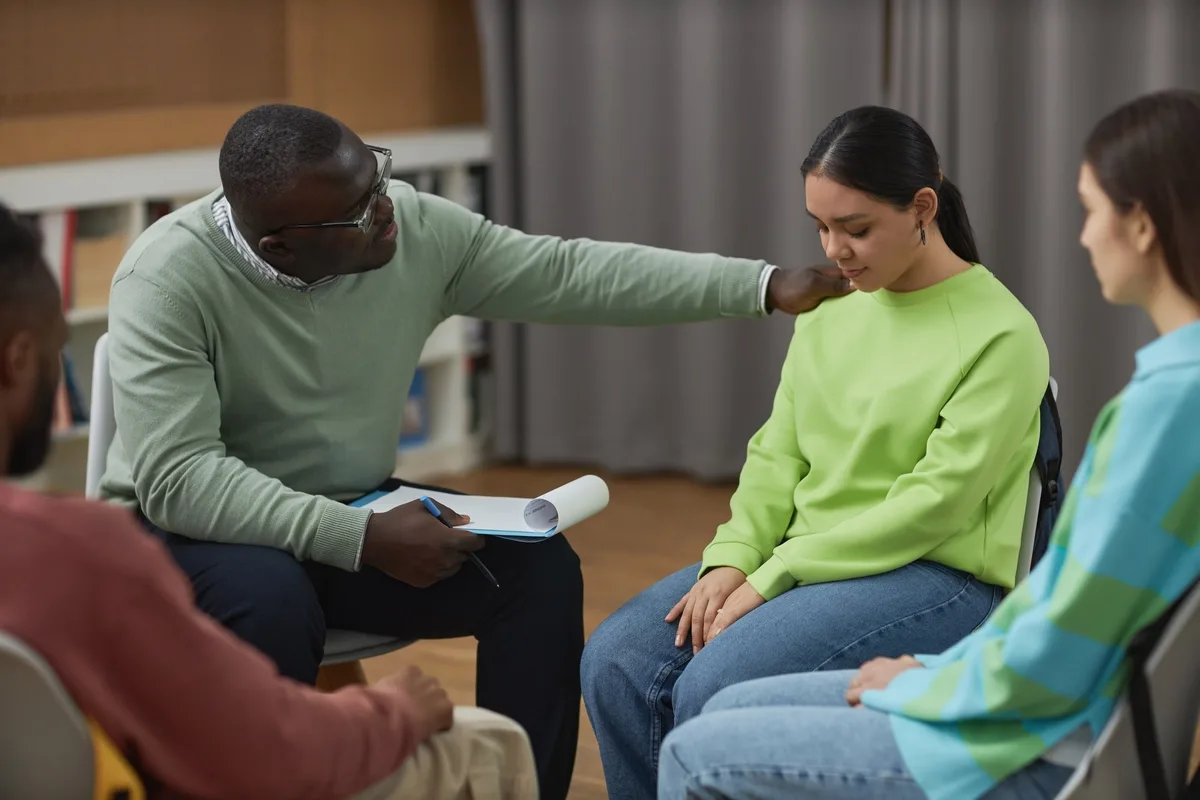24/7 Helpline:
(866) 899-221924/7 Helpline:
(866) 899-2219
Learn more about PTSD Rehab centers in Tabor City
PTSD Rehab in Other Cities

Other Insurance Options

Premera

Optum

Coventry Health Care

BlueShield

Access to Recovery (ATR) Voucher

CareSource

Covered California

Sliding scale payment assistance

Medical Mutual of Ohio

MHNNet Behavioral Health

Optima

Ambetter

CareFirst

American Behavioral

Amerigroup

Anthem

Oxford

Self-pay options

ComPsych

Regence







Allied Behavioral Management
Allied Behavioral Management is a private rehab located in Whiteville, NC. Allied Behavioral Managem...

Advantage Behavioral Healthcare
Advantage Behavioral Healthcare - Davis Avenue offers outpatient treatment for individuals with alco...

Robeson Healthcare Corporation
Robeson Healthcare Corporation - Hill Plaza is a non-profit rehab located in Whiteville, North Carol...






















































































































AA – Alcoholics Anonymous
AA – Alcoholics Anonymous is a non-profit rehab located in Whiteville, North Carolina. AA – Alcoholi...

Rouse Counseling & Consulting
Rouse Counseling & Consulting is a private rehab located in Whiteville, North Carolina. Rouse Counse...

Clean and Clear Evaluation
Clean and Clear Evaluation is a private rehab located in Whiteville, NC. Clean and Clear Evaluation ...








































































